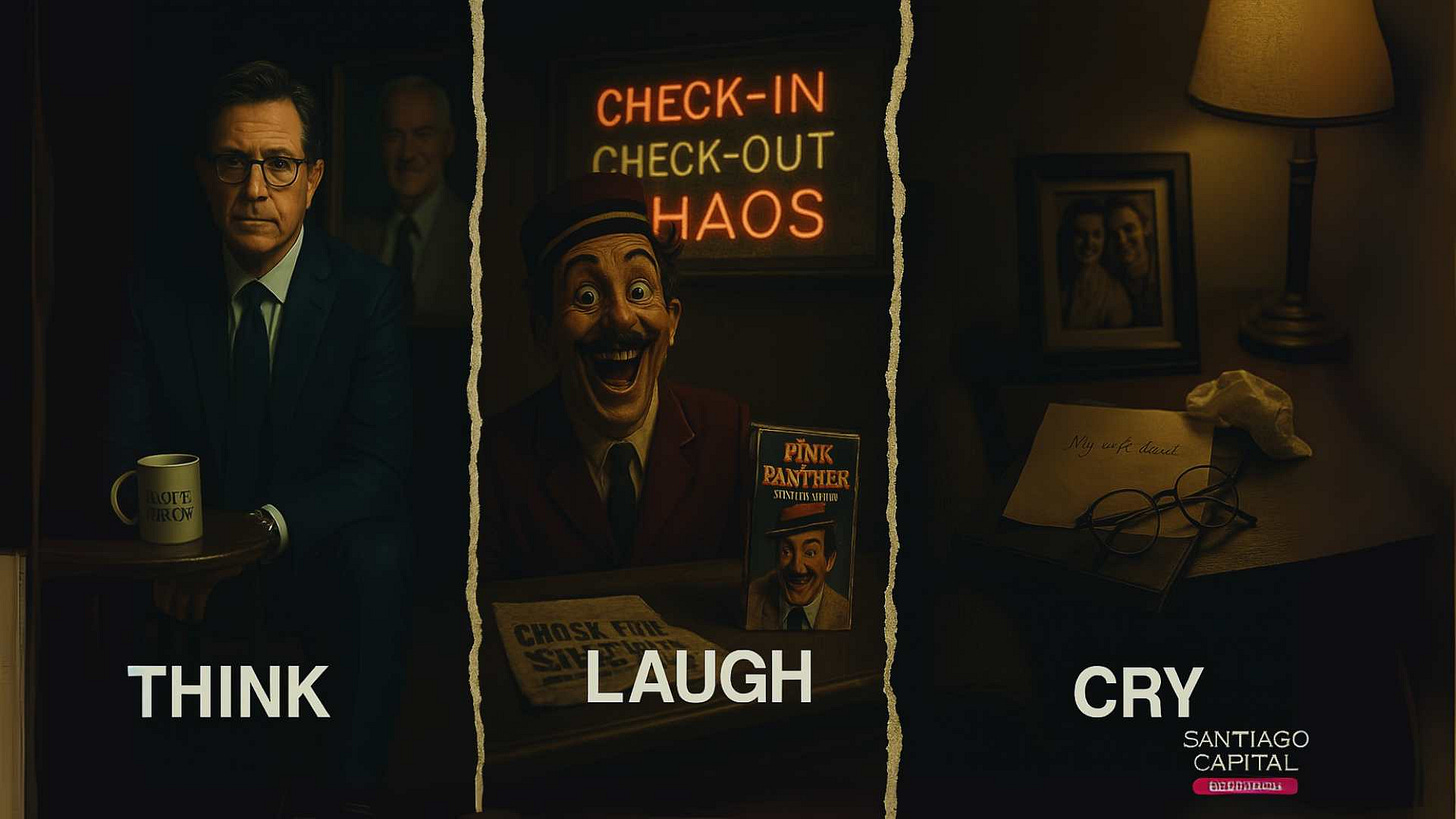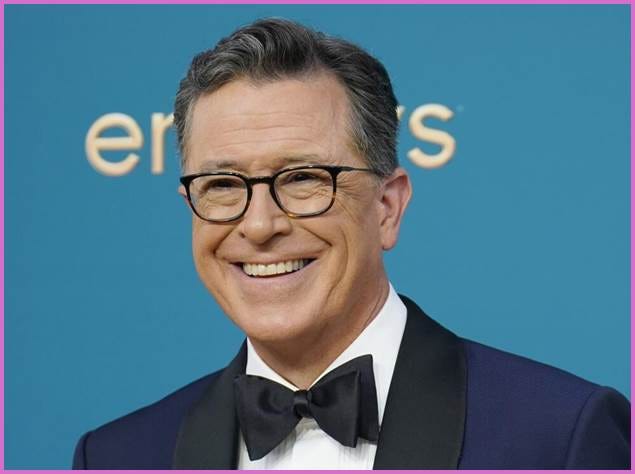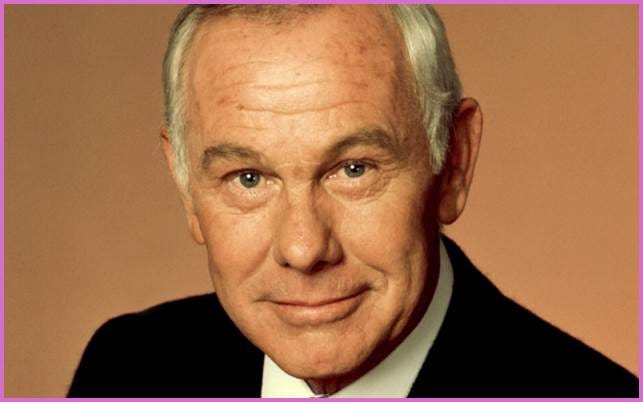TLC
THINK
Last week, news broke that Stephen Colbert had been fired from his long-running role as a late-night host. The decision came quietly but not without resonance.
For nearly a decade, Colbert served as the face of The Late Show on CBS, where his sharp wit and unmistakable political leanings defined the tone of his broadcast. Before that, he gained national recognition on The Colbert Report, a satirical spin-off of The Daily Show, where he parodied conservative media personas with biting irony.
Over time, that parody gave way to sincerity. During the Trump presidency, Colbert's commentary became less satirical and more openly critical—an explicit voice in opposition. He made no secret of his disdain for Trump, and his nightly stage became a kind of pulpit: an arena where jokes blurred into judgments, and satire merged with sustained critique.
Whether viewers agreed with his politics or not, one thing was clear: Colbert had opinions, and he used his platform to express them. That clarity of voice drew many to him—and perhaps, ultimately, also contributed to his exit.
Some speculate that Colbert’s removal was not merely a matter of ratings or content fatigue, but a politically motivated decision by the network’s parent company, which was simultaneously seeking regulatory approval for a major corporate deal. If true, the timing suggests a quiet but powerful reminder: even entertainers who influence politics may be subject to the politics of influence.
Click here for a Summary of the Cancellation of The Late Show
This moment invites a rare kind of cultural reflection, one that stretches across decades. It compels us to look back to the golden age of late-night television, to a time when Johnny Carson reigned as the undisputed king of the format.
Carson hosted The Tonight Show from 1962 to 1992, shaping not just late-night comedy but American pop culture itself for an entire generation. His monologues set the standard, his interviews became national rituals, and his timing—cool, dry, effortless—made him a beloved icon. But most of all, Carson was apolitical.
In a 1979 interview with Mike Wallace (Click here to listen to an excerpt), he addressed criticism that he avoided serious issues.
His response was both direct and philosophical: comedians, he said, should not wield their platform to influence public thought. To do so, he warned, was a danger—a slide into self-importance that could distort the purpose of entertainment itself. “Why do they think just because you have The Tonight Show that you must deal in serious issues?” he asked. “It’s a danger...you could sway people, and I don’t think you should.”
Colbert and Carson stand as two poles on the spectrum of public influence. One believed it was his duty to remain neutral, even if that meant being criticized as evasive or detached. The other leaned fully into the cultural moment, offering nightly clarity on where he stood—and why. Their contrast reveals something deeper than personal style: a philosophical divide about what entertainers owe their audiences.
Some argue that neutrality carries its own kind of nobility—a humility that respects the boundaries between entertainment and advocacy. Others see it as a missed opportunity, even a quiet form of abdication.
When opinion becomes the nightly norm, the risks shift. Advocacy can energize and engage, but it can also polarize and exhaust. In an age where silence is often interpreted as complicity, the very idea of staying out of the fray has become its own kind of statement.
These questions remain unresolved.
Perhaps they are meant to be.
Carson once warned against entertainers slipping into the illusion that their words had great importance. Yet we now live in an age where audiences expect more than punchlines—they look for signals, stances, alignment.
Colbert chose a side—the right or wrong side is up for debate, but a side, nonetheless.
And Carson refused to choose, believing his role was to entertain, not to steer.
As late-night television evolves—or fades—into something else entirely, the divide between these two men marks more than personal style. It outlines a fundamental question about influence, responsibility, and the purpose of public platforms.
It is not for me to say who was right. But it is very much worth asking what we now expect—and what we truly want—from those who speak to us when the world goes quiet for the night.
And as such, I will leave you think about this question on your own…





